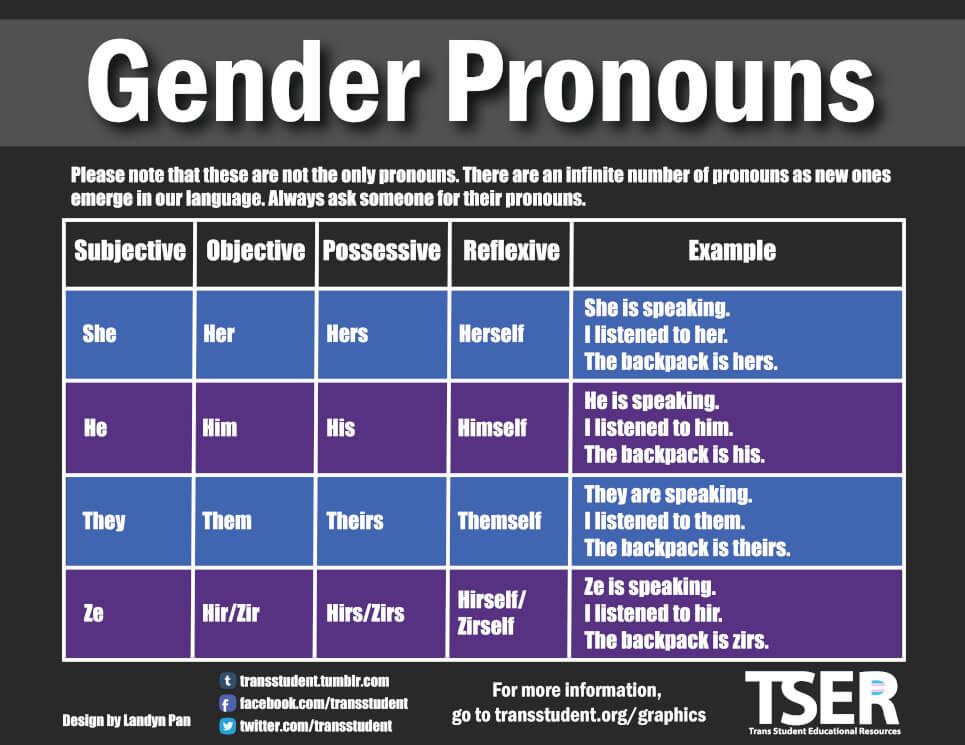

Person's name included in the list of electors. Subject to this Act, every person who is qualified as an elector is entitled to have the Pronoun altogether, as follows: "When notifying the other residents, anĪpplicant must lodge a section 12 notice within 14 days". Replace it with "he or she", or re-write the sentence to avoid the use of the Pronoun is not advised and it would be better to repeat the noun "applicant", Within 14 days." The use of "they" in this sentence is ambiguous it is notĬlear if the antecedent is "residents" or "applicant".

Nouns are discussed in the article on Gender-neutral Language.)Īn applicant notifies the other residents, they must lodge a section 12 notice Examples of singular indefinite nouns are:ĭo not use "they" to refer to a definite singular noun. This usage is also reflected in the legislative practicesĬonsider using the third-person pronouns "they", "their", "them", "themselves" or "theirs" to refer toĪ singular indefinite noun, to avoid the unnatural language that results from Most dictionaries and grammars deal with the singular usage of "they" and its other grammatical forms ("their", "them", "themselves" or "theirs"). Singular indefinite noun, to avoid the unnatural language that results fromĭo not use "they" to refer to a definite singular noun.Įnsure that the pronoun's antecedent is clear. Pronouns "they", "their", "them", "themselves" or "theirs" to refer to a

Language and heavy or awkward repetition of nouns. Becoming more common not only in spoken but in written English and can prove toīe useful to legislative counsel in a legislative context to eliminate gender-specific


 0 kommentar(er)
0 kommentar(er)
